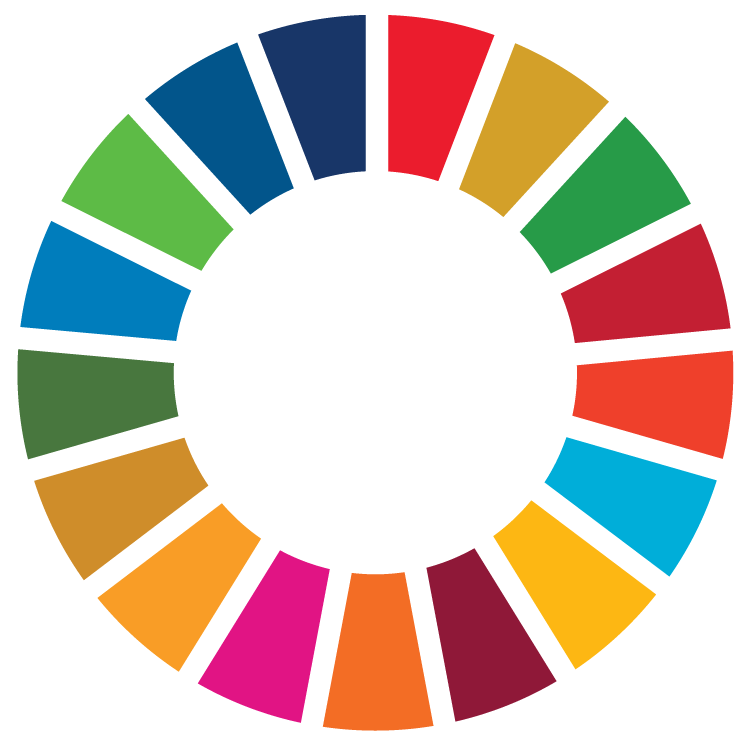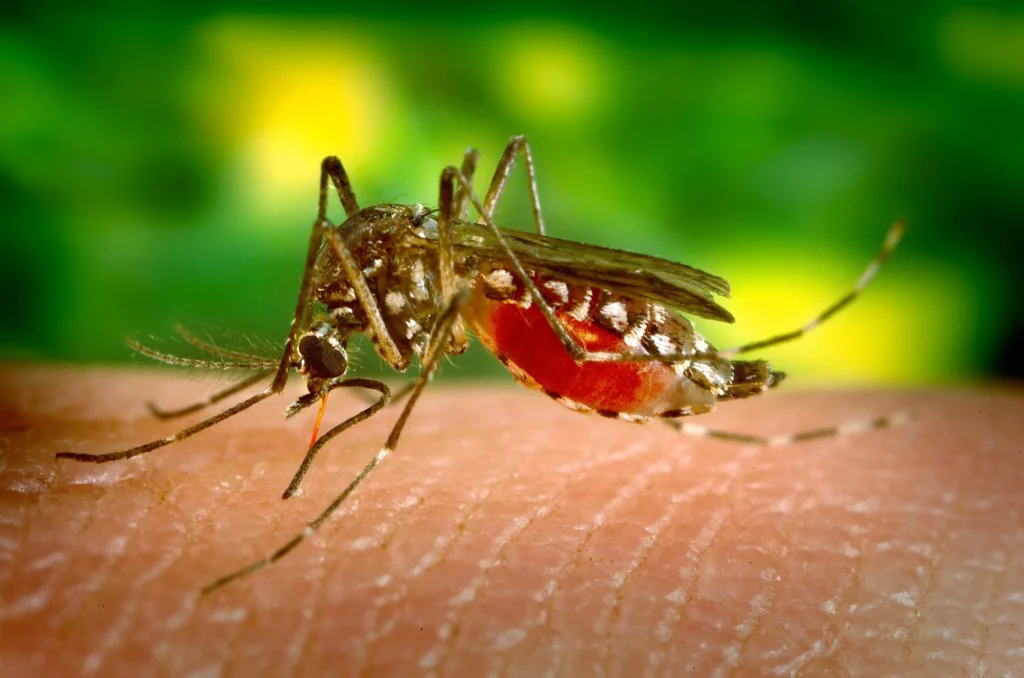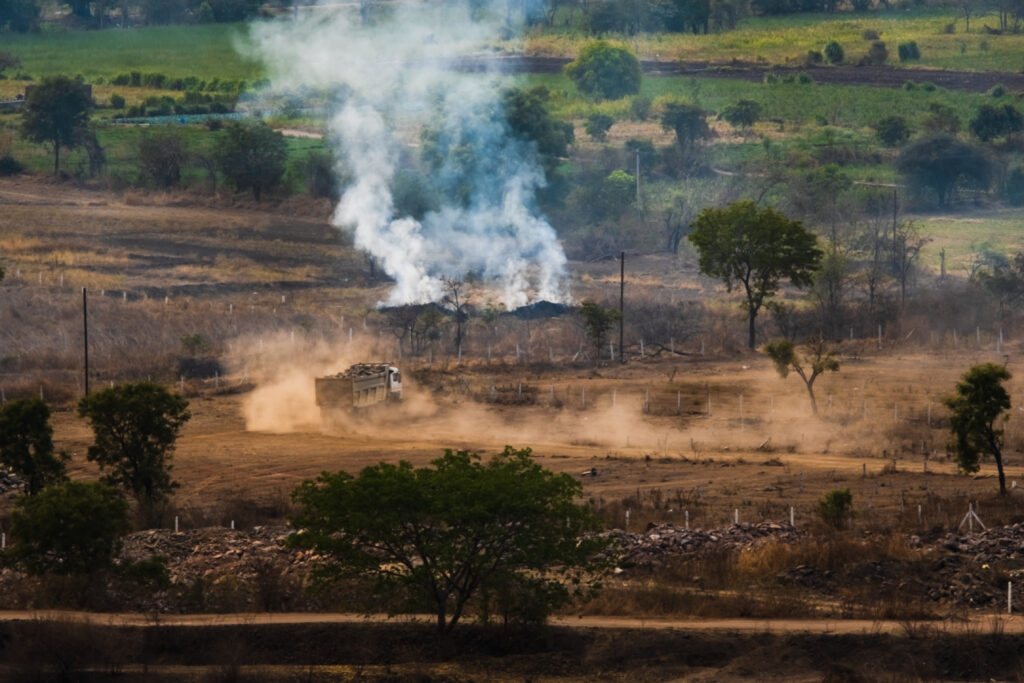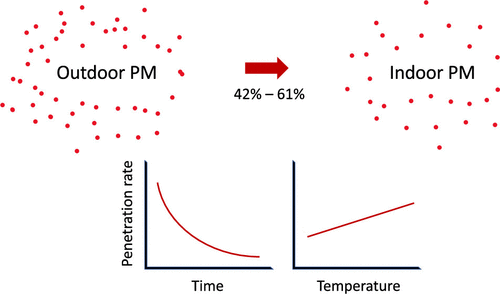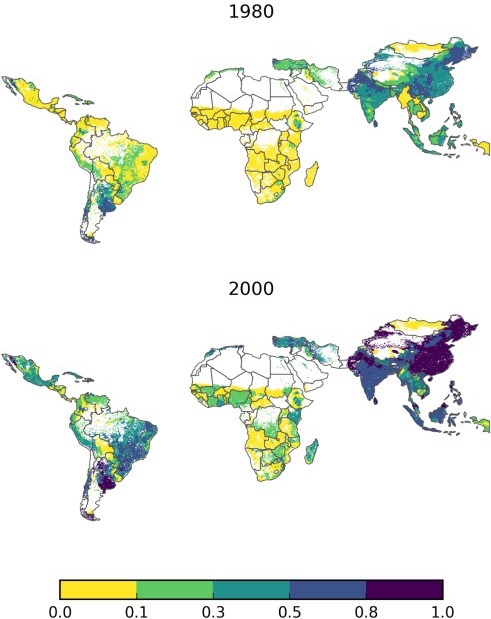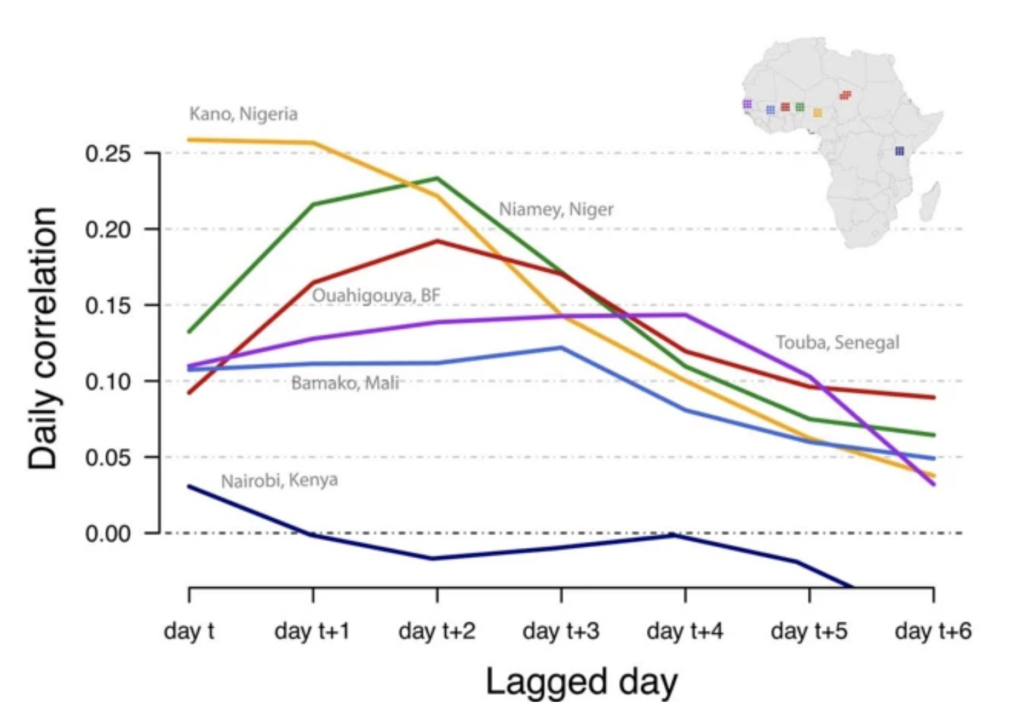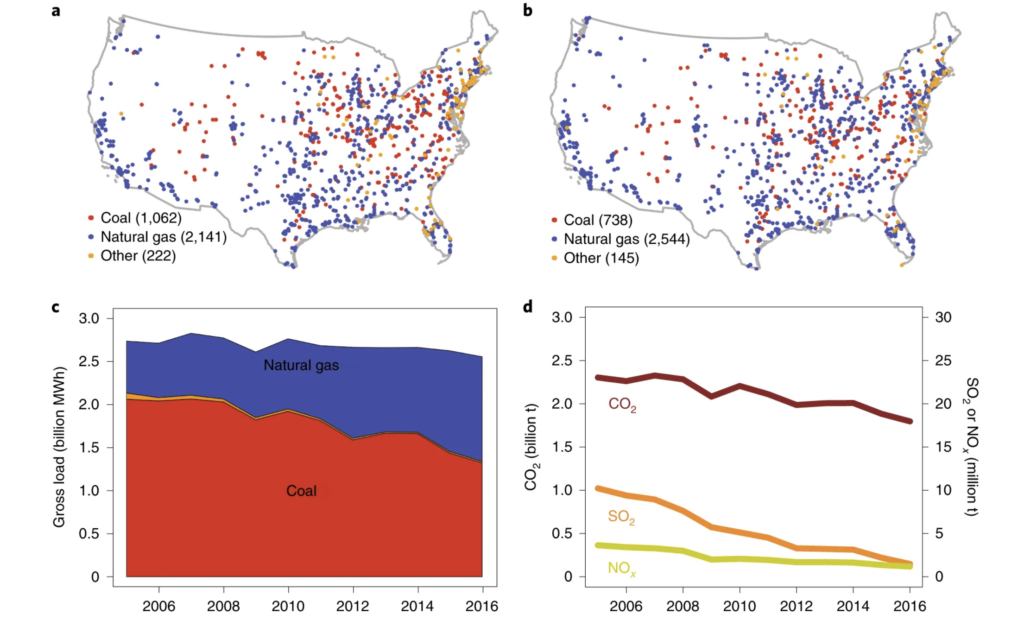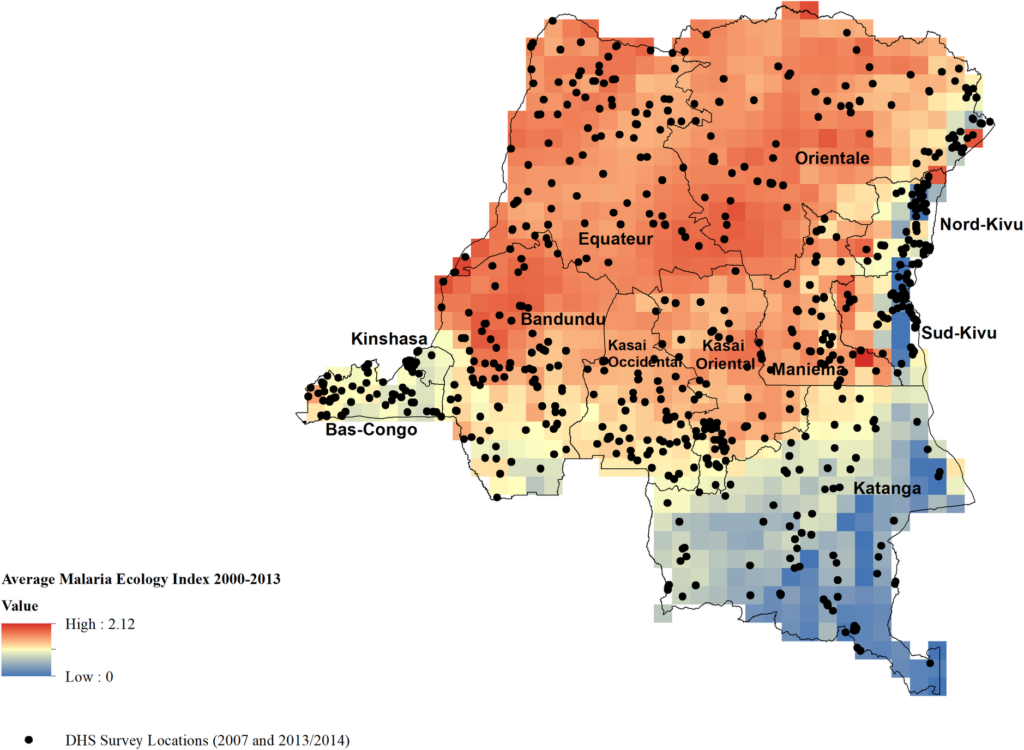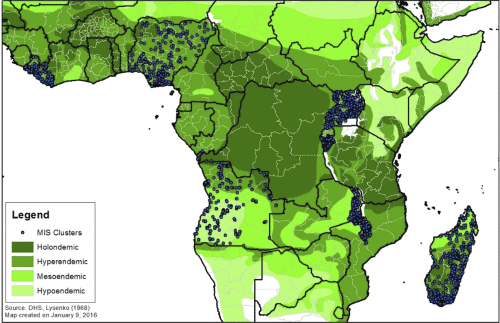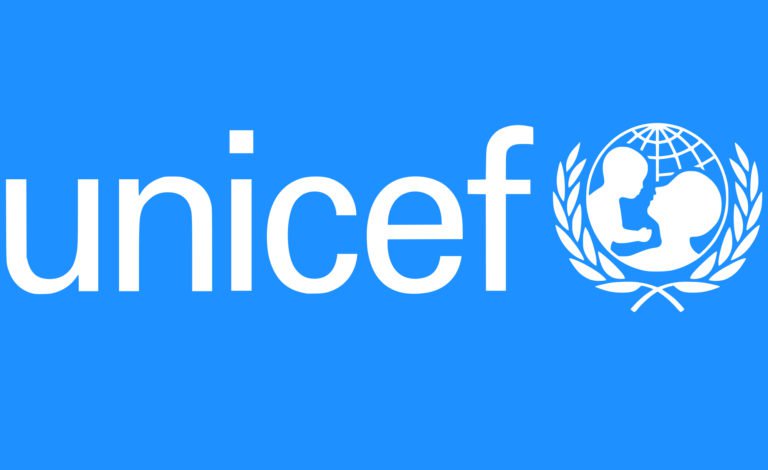Technological transformations open new opportunities and disrupt old patterns. Founded in 2006, Center on Global Transformation (CGT) provides a new framework for vanguard exploration of topics critical to analyzing and shaping the forces of economic change in a deeply interconnected, thoroughly dynamic world. CGT and its Pacific Leadership Fellows program focus on academic inquiry and policy analysis of international issues. CGT’s core mission is to: Foster and disseminate research that addresses global economic and technology transformation Develop and maintain a network…
SDG 3
Major progress has been made in improving the health of millions of people, increasing life expectancy, reducing maternal and child mortality and fighting against leading communicable diseases. However, progress has stalled or is not happening fast enough with regard to addressing major diseases, such as malaria and tuberculosis, while at least half the global population does not have access to essential health services and many of those who do suffer undue financial hardship, potentially pushing them into extreme poverty. Concerted efforts are required to achieve universal health coverage and sustainable financing for health, to address the growing burden of non-communicable diseases, including mental health, and to tackle antimicrobial resistance and determinants of health such as air pollution and inadequate water and sanitation.
Recent research at the School of Global Policy and Strategy
The Policy Design and Evaluation Lab (PDEL) is an international focal point for rigorous empirical research on the interplay of public policy, technology, and economic development. PDEL combines advanced social science methodology with the power of information technology to design policies and programs that alleviate poverty; promote health, welfare, and security; and enhance accountability. Why PDEL? UC San Diego and its scholars are at the leading edge of a movement to develop a new class of solutions to some of…
Baja California SDG Monitoring Dashboard The dashboard translates the globally agreed Sustainable Development Goals into metrics that can guide decisions and progress of Baja California’s communities — Gordon McCord, Director, SDGPI Visit the dashboard → Project Overview The Baja California SDG Monitoring Dashboard is a joint initiative of the Secretaría de Economía e Innovación de Baja California (SEI‑BC) and the SDG Policy Initiative (SDGPI) at the UC San Diego School of Global Policy & Strategy. It localizes the United Nations 2030 Agenda by tracking Sustainable Development…
Project Overview With sponsorship from the Wellcome Trust and in collaboration with New Light Technologies Inc. and UNICEF, the SDG Policy Initiative is developing an online infectious disease prediction platform using real-time climate conditions to map predicted spikes in disease rates and to inform decision makers of public health resources required for disease prevention and treatment. The project will with dengue as a proof-of-concept, and then incorporate other diseases. Dengue fever is a climate-sensitive disease transmitted by the Aedes…
The FABLE Consortium has released its 2020 Report on Pathways to Sustainable Land-Use and Food Systems. Explore the latest trends in food and land-use with the new ‘Scenathon’ dashboard. Visit the FABLE Consortium Explore Scenathon Read Report Overview FABLE is a global consortium with teams of scientists in 20 countries modeling land use to 2050 in an integrated framework. Land use and land use change accounts for 23% of GHG emissions globally, biodiversity loss is accelerating at alarming rates, and…
Teevrat Garg
The paper explores the unexpected consequences of road construction projects in rural India. While constructing roads to connect labor markets in remote areas is often seen as a positive development, this study reveals a significant drawback. The research finds that such road projects inadvertently lead to an increase in harmful crop fires, which have detrimental effects on both air quality and human health. The paper draws attention to the need for a more comprehensive understanding of the multifaceted impacts of rural infrastructure development, highlighting the importance of considering environmental consequences alongside economic benefits when planning such initiatives in developing regions.
2023
Achyuta Adhvaryu
This paper investigates the health impacts of fossil fuel-driven energy production by exploiting a unique Colombian electricity pricing policy. This policy triggers increased thermal energy production when wholesale electricity prices exceed a pre-determined scarcity price, resulting in heightened local pollution levels. Comparing municipalities near high-capacity thermal plants to those near low-capacity plants, the study reveals a significant increase in cardiovascular-related emergency room mortality (56%) and respiratory-related morbidity (9%) in areas with heightened thermal energy production. These findings translate into substantial health costs, estimated at 996 million USD, considering lives lost and increased healthcare expenditures. The study’s focus on Colombia contributes valuable insights into the health consequences of fossil fuel-based energy production in lower-income countries, shedding light on the global
Gordon McCord
Gordon McCord along with other researchers from UCSD coauthored a study that shows intergenerational impacts of the BGD, showing that men who were in utero at the time were more likely to have a disability that affected their employment 15 years later, and had higher rates of cancer and lower educational attainment over 30 years later. Changes in the sex ratio among children born in 1985 suggest an effect of the BGD up to 100 km from the accident.
2023
Jennifer Burney
Pollution from wildfires constitutes a growing source of poor air quality globally. To protect health, governments largely rely on citizens to limit their own wildfire smoke exposures, but the effectiveness of this strategy is hard to observe. Using data from private pollution sensors, cell phones, social media posts and internet search activity, we find that during large wildfire smoke events, individuals in wealthy locations increasingly search for information about air quality and health protection, stay at home more and are unhappier. Residents of lower-income neighbourhoods exhibit similar patterns in searches for air quality information but not for health protection, spend less time at home and have more muted sentiment responses. During smoke events, indoor particulate matter (PM2.5) concentrations often
Gordon McCord
The El Niño Southern Oscillation (ENSO) is a principal component of global climate variability known to influence a host of social and economic outcomes, but its systematic effects on human health remain poorly understood. We estimate ENSO’s association with child nutrition at global scale by combining variation in ENSO intensity from 1986-2018 with children’s height and weight from 186 surveys conducted in 51 teleconnected countries, containing 48% of the world’s under-5 population. Warmer El Niño conditions predict worse child undernutrition in most of the developing world, but better outcomes in the small number of areas where precipitation is positively affected by warmer ENSO. ENSO’s contemporaneous effects on child weight loss are detectable years later as decreases in height. This
Sam Bazzi
“Rugged individualism”—the combination of individualism and anti-statism—is a prominent feature of American culture with deep roots in the country’s history of frontier settlement. Today, rugged individualism is more prevalent in counties with greater total frontier experience (TFE) during the era of westward expansion. While individualism may be conducive to innovation, it can also undermine collective action, with potentially adverse social consequences. We argue that America’s frontier culture hampered responses to the COVID-19 pandemic. Across U.S. counties, greater TFE is associated with less social distancing and mask use as well as weaker local government effort to control the virus. We argue that frontier culture lies at the root of several more proximate explanations for the weak collective response to public
Jennifer Burney and Katharine Ricke
Aerosol emissions occur in tandem with greenhouse gases (GHGs) and vary by type of economic activity, so concurrent changes to aerosols from GHG reduction depend on what activities are reduced. We show that, by 2030, the different policy priorities can differ by more than a million premature deaths annually and could cause a similar amount of cooling as from the reduced GHGs, indicating that there are substantial tradeoffs between global climate and local air quality objectives. We conclude that deliberate consideration of particle emissions as part of climate policy could provide additional benefits, especially in less industrialized regions.
2021
Achyuta Adhvaryu
Using two decades of data from twelve low-income countries in West Africa, we show that dust carried by harmattan trade winds increases infant and child mortality. Health investments respond to dust exposure, consistent with compensating behaviors. Despite these efforts, surviving children still exhibit negative health impacts. Our data allow us to investigate differential impacts over time and across countries. We find declining impacts over time, suggesting adaptation. Using national-level measures of macroeconomic conditions and health resources, we find suggestive evidence that both economic development and public health improvements have contributed to this adaptation, with health improvements playing a larger role.
Achyuta Adhvaryu
Environmental disasters have increased in frequency and intensity as a result of climate change.Can timely intervention help protect against the health impacts of these disasters? We study this question by leveraging data from a double-blind cluster-randomized controlled trial of at-birth vitamin A supplementation, which boosts immune system functioning, in Bangladesh. During the trial, a large tornado swept through the study area, affecting both treatment and control clusters. Tornado exposure in utero and in infancy decreased birth size and physical growth,and increased the incidence of severe fevers. But infants who received supplementation were protected from these negative effects.
Jennifer Burney and Joshua Graff Zivin
Using hourly measures across a full year of crowd-sourced data from over 1000 indoor and outdoor pollution monitors in California, we explore the temporal and spatial relationship between outdoor and indoor particulate matter (PM) concentrations. We find that an increase in outdoor PM concentration of 10% leads to an average increase of 4.2–6.1% in indoor concentrations. We also provide evidence showing that penetration rates are associated with building age and climatic conditions. Since people spend a substantial amount of each day indoors, our findings have significant implications for government policies to improve public health through reductions in exposure to ambient air pollution.
Nico Ravanilla
Community information sharing is crucial to a government’s ability to respond to a disaster or a health emergency, such as a pandemic. In conflict zones, however, citizens and local leaders often lack trust in state institutions and are unwilling to cooperate, risking costly delays and information gaps. We report results from a randomized experiment in the Philippines regarding government efforts to provide services and build trust with rural communities in a conflict-affected region. We find that the outreach program increased the probability that village leaders provide time-sensitive pandemic risk information critical to the regional Covid-19 Task Force by 20%.
Gordon McCord
What is the contribution of the ‘Green Revolution’ to improvements in child health during the century? We provide global scale estimates of this relationship by constructing a novel, spatially-precise indicator of modern crop variety (MV) diffusion and leveraging child-level data from over 600,000 children across 21,604 sampling locations in 37 developing countries between 1961–2000. Results indicate that the diffusion of MVs reduced infant mortality by 2.4–5.3 percentage points (from a baseline of 18%), with stronger effects for male infants and among poor households. The sizable contribution of agricultural technology to improved welfare should inform global food and development policy.
Jesse Driscoll
Shelter-in-place ordinances were the first wide-spread policy measures aimed to mitigate the spread of COVID-19. Compliance with shelter-in-place directives is individually costly and requires behavioral changes across diverse sub-populations. Leveraging county-day measures on population movement derived from cellphone location data and the staggered introduction of local mandates, we find that economic factors have played an important role in determining the level of compliance with local shelter-in-place ordinances in the US. Specifically, residents of low income areas complied with shelter-in-place ordinances less than their counterparts in areas with stronger economic endowments, even after accounting for potential confounding factors including partisanship, population density, exposure to recent trade disputes, unemployment, and other factors. Novel results on the local impact of the 2020
Jennifer Burney
Estimation of pollution impacts on health is critical for guiding policy to improve health outcomes. Estimation is challenging, however, because economic activity can worsen pollution but also independently improve health outcomes, confounding pollution–health estimates. We show that future climate change driven changes in Saharan rainfall—a control on dust export—could generate large child health impacts, and that seemingly exotic proposals to pump and apply groundwater to Saharan locations to reduce dust emission could be cost competitive with leading child health interventions.
Jennifer Burney
Between 2005 and 2016 in the continental United States, decommissioning of coal-fired units was associated with an estimated 26,610 lives saved. Although there are considerable benefits of decommissioning older coal-fired units, the newer natural gas and coal-fired units that have supplanted them are not entirely benign.
Joshua Graff Zivin
We investigate the effect of pollution on worker productivity in the service sector by focusing on two call centers in China. Using precise measures of each worker’s daily output linked to daily measures of pollution and meteorology, we find that higher levels of air pollution decrease worker productivity. These results manifest themselves at levels of pollution commonly found in large cities throughout the developing and developed world.
Teevrat Garg
This paper documents the effect of primary forest cover loss on increased incidence of malaria. Back of the envelope calculations indicate that the morbidity-related malaria-reducing local benefits of primary forests are at least $1-$2 per hectare.
Gordon McCord
Providing long-lasting insecticidal nets led to a 41% decline in under-5 mortality risk among children living in rural areas with higher than average malaria burden. Targeting bednets to areas with greatest underlying risk for malaria may help to increase the efficiency of increasingly limited malaria resources.
2019
Craig McIntosh
This study was designed to ‘benchmark’ a major USAID-funded child malnutrition program against what would have occurred if the cost of the program had simply been disbursed directly to people to spend as they see fit. The results indicate that programs targeted towards driving specific outcomes can do so at a lower cost than cash, but large cash transfers drive substantial benefits across a wide range of impacts, including many of those targeted by the more tailored program.
2018
Teevrat Garg
Waterborne diseases are the leading cause of mortality in developing countries. This paper emphasizes a previously ignored cause of diarrhea – upstream river bathing. Using newly constructed data on upstream-downstream hydrological linkages along with village census panel data in Indonesia, the paper finds that upstream river bathing can explain as many as 7.5% of all diarrheal deaths
Gordon McCord
In a review of economic arguments for cigarette taxation this paper finds that increases in tobacco excise tax can result in substantial smoking cessation particularly among people on low incomes. Tax increases can also decrease the risks of catastrophic medical costs and can also reduce years of life lost.
2018
Joshua Graff Zivin
Climate variability and change are issues of growing public health importance. We analyzed hospitalization data for three unique climate regions of San Diego County alongside temperature data spanning 14 years. Within the milder coastal region where access to AC is not prevalent, heat-related morbidity was higher in the subset of zip codes where AC saturation is lowest. We detected a 14.6% increase in hospitalizations during hot weather in comparison to colder days in coastal locations where AC is less common, while no significant impact was observed in areas with higher AC saturation. Disparities in AC ownership were associated with income, race/ethnicity, and homeownership. Given that heat waves are expected to increase with climate change, understanding health impacts of heat
2018
Peter Cowhey
Many researchers around the world are working to apply gene editing technologies with the hope of safely and effectively engineering populations of insects and other pest arthropods in the wild either to reduce diseases, such as malaria or dengue fever, or to control agricultural pests, such as those that transmit the bacterium that causes citrus greening disease. Important benefits could be realized if these research efforts are successful, but realizing these benefits requires sustained, open, and inclusive attention to potential environmental and social impacts and regulatory and implementation challenges.
2017
Gordon McCord
Researchers developed a Malaria Ecology Index using climatological and ecological data and found strong associations between malaria ecology and malaria testing data. Using both insecticide-treated nets or indoor residual spraying reduces the added risk from adverse malaria ecology conditions by half. Readily available climate and ecology data can be used to estimate the variation in malaria disease burden, providing a feasible alternative to direct surveillance.
Gordon McCord
Integrating HIV and nutrition programming leads to a positive impact on health outcomes. A small-scale pilot program that integrated HIV and nutrition service delivery, Malawi’s program had a cost-effectiveness of $11–29 per disability-adjusted life year, while Mozambique saw a cost effectiveness of $16–59 per disability-adjusted life year.


